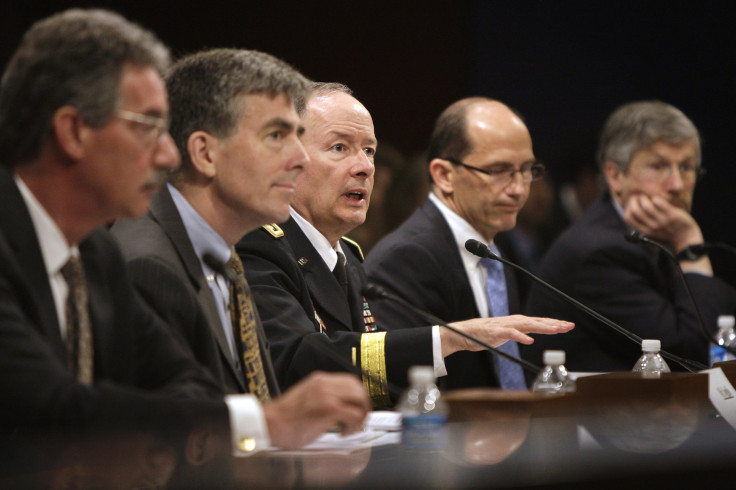NSA FISA Surveillance: Footnote Reveals Government Abused Phone Records Database

The National Security Agency for years abused the telephone records database containing nearly all Americans’ phone call data. And that’s about all we know.
On Wednesday, the director of national intelligence declassified a 2011 opinion of the secret Foreign Intelligence Surveillance Court (FISC) detailing years of unconstitutional surveillance of Americans’ electronic communications by collecting tens of thousands of domestic communications and not properly handling them. Buried in that opinion, footnote 14 hints at further violations of the NSA’s bulk surveillance programs.
For months, government officials have tried to calm lawmakers and the public after former NSA contractor Edward Snowden leaked documents revealing the government’s bulk collection of data on Americans' phone calls, both within the United States and between the U.S. and a foreign country. The data, including the numbers making and receiving the calls, and the time and duration, are stored for up to five years in a massive database. But intelligence officials have assured the public that the procedures and rules for using the database protect Americans’ privacy.
Footnote 14 would indicate that, at the very least, that has not always been the case.
“In March 2009, the Court concluded that its authorization of NSA’s bulk acquisition of telephone call detail records…in the so-called ‘big business records’ matter ‘ha[d] been premised on a flawed depiction of how the NSA uses [the acquired] metadata,’” the footnote, written by federal Judge John D. Bates, then the FISC’s chief judge, reads. Bates continues, saying that “[t]his misrepresentation by the FISC existed from the inception of its authorized collection in May 2006, buttressed by repeated inaccurate statements made in the government’s submissions, and despite the government-devised and Court-mandated oversight regime.”
In other words, the government repeatedly misled the court about its use of the database. The footnote goes on to describe the nature of this violation, which concerns the threshold for when and using what information an NSA analyst can run a query of the database.
“Contrary to the government’s repeated assurances, NSA had been routinely running queries of the metadata using querying terms that did not meet the required standard for querying,” Bates wrote. “The Court concluded that this requirement had been ‘so frequently and systemically violated that it can fairly be said that this critical element of the overall….regime has never functioned effectively.’”
In other words, the NSA repeatedly violated the rules for accessing the phone call records, a “critical element” of the program, so often that it essentially rendered these restrictions meaningless. Based on other documents related to the metadata program released this summer, the database can be queried only when a “designated approving official” at the NSA determines that “there are facts giving rise to a reasonable, articulable suspicion (RAS) that the selection term to be queried is associated with” a foreign terrorist group. (The NSA can run additional queries on phone data found to be related by three degrees to a query term.) Though that standard exists today, it is unknown if that’s the same standard that was in use from 2006 to 2009, when the footnote indicates the rules were being broken.
The footnote, and the whole opinion more broadly, carried a tone of exasperation that the court was being misinformed about the scope and nature of the surveillance program at issue because, as the same footnote indicates, this kind of misrepresentation was not a one-off event. “The Court is troubled that the government’s revelations regarding NSA’s acquisition of Internet transactions mark the third instance in less than three years in which the government disclosed a substantial misrepresentation regarding the scope of a major collection program,” Bates wrote.
© Copyright IBTimes 2025. All rights reserved.






















